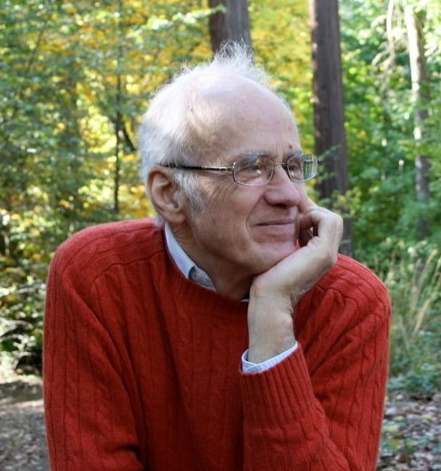It's been three decades since James Hansen testified before a Congressional committee about the dangers of climate change (1998), and yet emissions of dangerous "greenhouse gases" are continuing and even increasing. What is to be done? Is it time to turn to a counter-intuitive approach?
So far, a scientific consensus has been made known to the general public, including our leaders. International conferences have been held (such as the recent COP24 in Poland). Bill McKibben and his friends have conducted "keep it in the ground" actions, and encouraged divestment from fossil-fuel firms, based in part on McKibben's article, "Global Warming's Terrifying New Math" (Rolling Stone, 2012). In 2014 another board member of the pioneering 350.org, Naomi Klein, published This Changes Everything: Capitalism vs the Climate. Many other organizations have also made brilliant efforts, including the investigative journalism of InsideClimate News in 2015.
Plans for a green-energy conversion have been spelled out (recently, for example, by Heinberg and Fridley in Our Renewable Future (2016), by the book Drawdown, edited by Paul Hawken (2017), and by Hal Harvey in Designing Climate Solutions (2018). Yet, emissions are increasing.
Where are we? Most officials in one of our two parties have denied climate science, including our President. The current leadership of the other party is resisting anything that sounds non-centrist, like a green New Deal. Meanwhile, the bad news continues.
The obvious hasn't worked. We can analyze why, as in the ground-breaking book by David Marshall, Don't Even Think About It: Why Our Brains Are Wired to Ignore Climate Change (2014). Given the resistance, what about something counter-intuitive?
Here I want to lay out how difficult the necessary green-energy transition will be, and offer one suggestion for making it possible. (I'm aware that a solution involves more than an energy transition, such as stopping deforestation and storing carbon in other ways.) First, what are the desiderata for the transition?
"Keep it in the ground" is a valuable slogan, but put yourself in the role of a fossil-fuel executive. Part of the value of our stock is based on "proven reserves" (and on the capacity to find and extract more coal, gas, and oil). Are you going to accept a path that could led to going out of business or are you going to (a) give "campaign contributions" (legal bribes) to politicians, (b) fund "think tanks" that cast doubt on climate science, (c) hire expensive lobbyists, (d) rely on corporate mass media not to stress the link between fossil, fuels and the strength and frequency of climate craziness (e) if necessary, engage in a little armless "greenwashing" such as putting solar panels on the roofs of gas stations, and (f) support a 'carbon tax' as long as it's so small it would make little difference?
It doesn't take a genius to think up stuff like this. You have only to follow the example of the tobacco industry, as shown in Merchants of Doubt by Naomi Oreskes and Eric M. Conway (2010).
The situation is tricky, because during any transition, a declining amount of fossil fuel would be needed, presumably from the same firms that now purvey it. We could expect especially fierce and prolonged opposition from the fossil-fuel firms unless they were helped to convert themselves, during the transition, into green-energy companies. Ideally, as the fossil-fuel part of a firm shrunk, a green-energy part would flourish, absorbing talent and capital, serving their old customers in new ways.
Who would pay for "stranded assets" among the proven reserves? Given what they've known, the fossil-fuel firms can be demonized, but perhaps we should imagine how they might be induced to join the green-energy transition or at least not resist it as, so far, they effectively have. What is to become of the value of the fossil-fuel reserves that must be "kept in the ground"? If government used its tax breaks and subsidies on behalf of the green-energy transition, rather than of ways now understood to be dangerous, then the firms could still thrive on those dollars, but they would be supporting the future no longer the past.
Meanwhile, what would become of the fossil fuel left in the ground, which would present a constant temptation for somebody to extract it? What about a green-energy transition trust, to which firms could transfer ownership of most of their reserves, a trust that would exist for the sole purpose of sequestering its assets and declining in perpetuity to extract them? Why would firms engage in such transfer? In return for the government benefits already mentioned? The assets would be transferred now, the financial benefits provided over time. As a shrewd negotiator would know, these assets might decline in value to zero. The fossil-fuel firms would have to make an irrevocable deal now.
A precedent exists for a trust that would receive assets but never alter them. This is the nature-conservation trust. All we need do extend this concept from the surface of the earth to fuels underground. A green-energy-transition trust.
Other tricky issues would arise in this necessary transition. For example, how to handle the widespread investment in devices now run on fossil fuel. These devices include vehicles, furnaces, and gas stoves (plus appliances such as power mowers, chainsaws, leaf-blowers, and grills).
This article is meant to illustrate the value of seeing the situation from the viewpoint of those supplying the fuel that helped build our civilization but also emits gases has we now know bring a severe danger. It is the job of these firms, under our system, to maximize profits. It is the job of the rest of us to preserve a livable world. So far, we have described the danger in thousands of scientific articles and in writing based on them and spelled out an end-state that would avoid the danger, but how do we get there?





